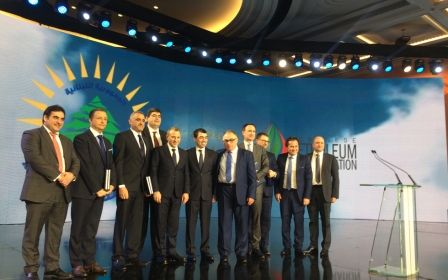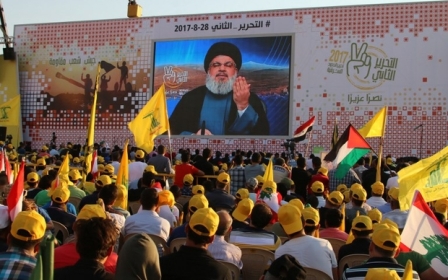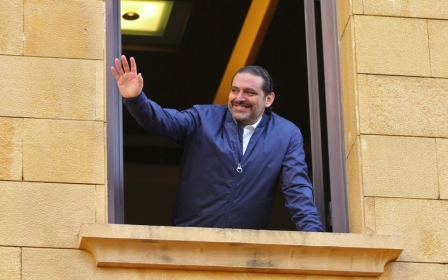US charges three with exporting drone parts to Hezbollah

A US federal grand jury indicted three Lebanese men on charges of illegally exporting drone parts from the US to the Lebanese militant group Hezbollah, the US Justice Department announced Friday.
The US Attorney's office for Minnesota said two of the suspects - Usama Hamade, 53, and his brother, Issam Hamade, 55 - are now in custody in South Africa. The third, Samir "Tony" Berro, 64, remains at large. Usama Hamade, aka "Prince Sam" is a dual-citizen of South Africa and Lebanon. Berro and Issam Hamade have dual British-Lebanese citizenship.
"This indictment describes an elaborate conspiracy and scheme to allegedly provide goods and technology to Hezbollah," US Attorney Gregory Brooker told the Minnesota-based Star Tribune.
"The investigation of this case was extremely complicated and our federal law enforcement partners at the FBI, the US Department of Commerce's Office of Export Enforcement, and Homeland Security Investigations conducted a thorough investigation and we are thankful for their dedication."
The Shia group Hezbollah is considered a terrorist organisation by the US. The group, which is backed by Iran and is currently engaged in fighting in support of the regime of Bashar al-Assad in Syria, has used drones at least since 2004.
The updated indictment unsealed Friday was dated 11 October 2017, but the original was filed in 2015 and kept seceret to keep the investigation secret from the three men.
The brothers were arrested Tuesday in South Africa for extradition to the United States to face trial in Minnesota, according to another prosecution filing Friday. They appeared before a magistrate there and were ordered held pending another hearing February 26.
Usama Hamade is a South African resident. A Facebook profile in Issam Hamade's name says he lived in Bedfordview, a suburb of Johannesburg. However, the indictments do not say where he lived. The Facebook profile also suggests Issam Hamade studied to become an officer at the Lebanese military academy and includes images of him in Lebanese Army uniform.
Drone parts shipped via Dubai
The indictment alleges the conspiracy operated from 2009 through December 2013. It says the equipment included electronics that can be used in drone guidance systems, a jet engine and 20 piston engines that can be used in drones, and a pair of digital video recording binoculars.
The parts included inertial measurement units (IMU), which can be used to track an aircraft's position, and digital compasses, which can be paired with the IMUs for drone guidance systems. The indictment doesn't name the companies, but the model names and numbers indicate the IMUs were manufactured by California-based Systron Donner Inertial, and that the digital compasses were made by Honeywell International's operations in Minneapolis.
The jet engine was sold by an unnamed Indiana company, while the piston engines were sold by an unnamed Florida company. The model number indicates the digital binoculars were made by Sony. None of the items could legally be exported to Hezbollah.
Berro controlled SAB Aerospace based in Dubai in the United Arab Emirates, the indictment said. Berro's Linkedin profile lists him as owner of the company since 1999 and lists the company location as Jordan. The profile describes SAB Aerospace as an "aircraft broker and spare parts stockist".
The defendants allegedly had most of the items shipped to Lebanon and Hezbollah through the UAE and South Africa. One shipment of piston engines also went through Minnesota.
Usama Hamade falsely claimed the IMUs and digital compasses would be used in drones in South Africa to monitor wildlife to prevent poaching, the indictment said. As part of the conspiracy, the indictment also alleged, Issam Hamade made nearly $174,000 in wire transfers from a bank in Beirut, Lebanon, to accounts controlled by his brother.
Middle East Eye propose une couverture et une analyse indépendantes et incomparables du Moyen-Orient, de l’Afrique du Nord et d’autres régions du monde. Pour en savoir plus sur la reprise de ce contenu et les frais qui s’appliquent, veuillez remplir ce formulaire [en anglais]. Pour en savoir plus sur MEE, cliquez ici [en anglais].




